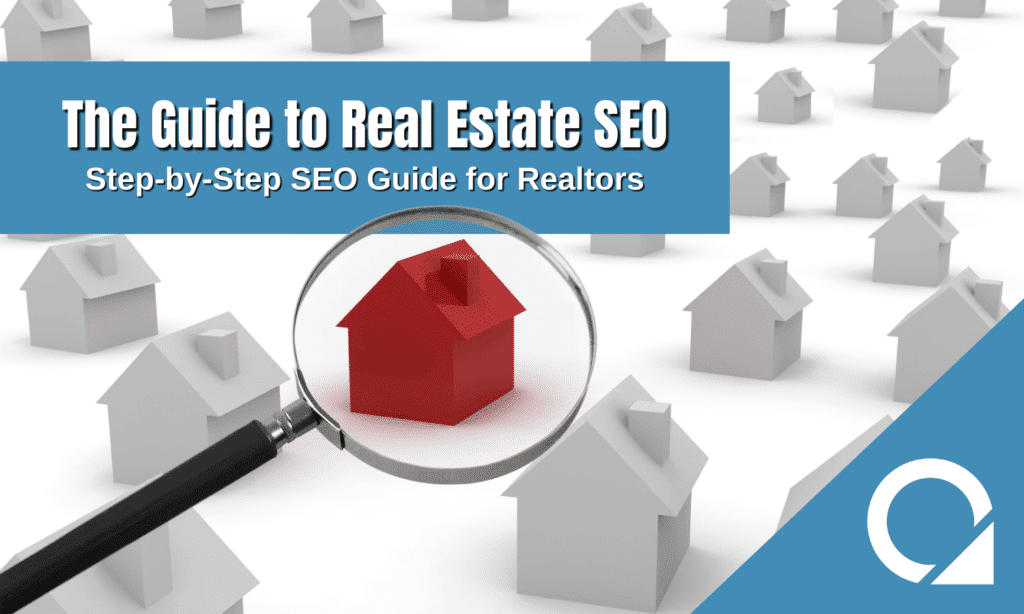Advanced Local SEO for Small Businesses: Tactics for Hyper-Local Market Domination
Small businesses face a dynamic challenge in today’s digital landscape. Simply having an online presence is no longer enough to stand out. The way customers find local services has shifted dramatically, making specific, targeted visibility more crucial than ever.
This is where hyper-local SEO comes into play. Unlike general local SEO, which broadly targets a city or region, hyper-local strategies focus on specific neighborhoods, blocks, or micro-markets. This precision allows small businesses to connect directly with their immediate community.
For small businesses, especially those without large marketing budgets, advanced local SEO offers a significant competitive advantage. It helps attract qualified leads who are actively searching for services nearby, leading to a measurable return on investment. Dean Cacioppo, with over two decades of expertise in SEO and real estate technology, understands this landscape deeply.

This article details advanced local SEO strategies. We will explore actionable techniques for measurable impact, helping you master hyper-local market domination. You will learn how to implement these strategies for increased organic local traffic.
Mastering Google My Business (GMB) for Hyper-Local Dominance
Google My Business remains the cornerstone of any effective local search optimization strategy. Beyond the basic setup, advanced GMB profile optimization requires strategic choices to truly dominate your hyper-local market. This includes precise category selection, leveraging secondary categories that accurately reflect all your services.
Comprehensive service area detailing is also essential. For businesses with multiple local footprints, managing each location within GMB ensures accurate representation. High-quality photo and video uploads should be optimized for engagement and local relevance, showcasing your business and its surroundings.
Your business description should be keyword-rich, focusing on hyper-local identifiers. Mentioning specific neighborhoods or landmarks helps Google understand your target audience. This level of detail boosts your visibility for specific local queries.
Leveraging GMB Posts and Q&A features is another layer of advanced local SEO. Utilize GMB Posts for hyper-local events, limited-time offers, or local news relevant to your immediate community. This keeps your profile fresh and engaging for potential customers.
Proactive Q&A management involves anticipating common local queries and providing thorough answers directly on your GMB profile. This establishes your business as an authority and addresses customer questions before they even ask. It significantly enhances user experience and conversion potential.
GMB Insights provide invaluable data for strategic decisions. Analyze GMB performance metrics like direct searches, discovery searches, calls, website visits, and direction requests. This information reveals how customers are finding and interacting with your business.
Identifying peak times for customer engagement and popular search queries allows for marketing adjustments. This data-driven approach ensures your efforts are always aligned with customer behavior. Understanding these analytics is key to improving your local SEO ranking factors.
Advanced On-Page SEO for Local Relevance
Advanced on-page SEO moves beyond general keywords to focus on geo-targeted content creation. Developing location-specific landing pages for each service area or neighborhood is a powerful strategy. These pages should be rich with content relevant to that specific micro-market.
Creating blog content focused on local events, news, and community partnerships further establishes your local authority. This shows search engines and users that you are deeply embedded in the community. Incorporating local landmarks, attractions, and community names naturally within your content strengthens this local relevance.
Implementing local schema markup is critical for enhanced search visibility. LocalBusiness schema helps search engines understand your Name, Address, Phone Number (NAP), opening hours, and services. This structured data can lead to richer search results, making your listing stand out.
Utilizing review schema displays star ratings directly in search results, building trust and encouraging clicks. Event schema can be implemented for local promotions and gatherings, providing specific details to interested community members. This helps search engines categorize your offerings accurately.
Optimizing for local intent keywords involves deep research into how local customers search. Focus on long-tail, hyper-local keywords, such as “[service] near [specific street]” or “[product] in [neighborhood].” These highly specific phrases indicate strong buying intent.
Analyzing voice search queries is also becoming increasingly important. Conversational local intent is common with voice assistants, so optimizing for phrases like “where is the best [service] around here?” can capture this growing segment. Understanding these nuances significantly improves your local search optimization efforts.
Building Hyper-Local Authority Through Backlinks and Citations
Local citation building strategies are foundational for hyper-local authority. Ensuring NAP (Name, Address, Phone Number) consistency across all local directories is paramount. Inconsistencies can confuse search engines and negatively impact your rankings.
Targeting industry-specific local directories and niche platforms further cements your local presence. Identifying and fixing inaccurate or duplicate citations helps clean up your digital footprint. This meticulous approach solidifies your business’s information online.
Acquiring geo-relevant backlinks is a powerful way to build domain authority within your local market. Sponsoring local community events or sports teams can generate valuable local links and mentions. These links often come from trusted local organizations, boosting your credibility.

Collaborating with other local businesses for reciprocal content or partnerships can also yield strong backlinks. Securing mentions from local news outlets, bloggers, and influencers provides highly authoritative links. These relationships extend your reach within the community.
Optimizing profiles on Yelp, TripAdvisor, and other relevant local platforms is crucial. These sites often rank highly in local searches themselves. Forming strategic alliances with complementary local businesses for cross-promotion further strengthens your local network and referral potential.

Harnessing User-Generated Content and Reviews
Authentic local reviews are a cornerstone of hyper-local domination. Implementing clear processes to encourage reviews from satisfied local customers is vital. Make it easy for them to share their experiences.
Utilizing direct links and QR codes for review submission streamlines the process. It’s important to avoid incentivized reviews, as these can violate platform guidelines and damage your credibility. The Federal Trade Commission provides guidance on these practices, which can be found in the FTC Policy Reports.
Responding to reviews, both positive and negative, should be a consistent practice. Prompt and personalized responses show you value customer feedback. Addressing negative feedback professionally and offering solutions can turn a critical experience into a positive one for future customers.
Use review responses to reinforce your local identity and services. Mentioning specific aspects of your business or local area within your replies enhances their authenticity. This proactive engagement builds a strong local reputation.
Leveraging testimonials and case studies provides social proof. Showcase positive local testimonials prominently on your website and marketing materials. Developing hyper-local case studies demonstrates measurable impact for local clients, offering concrete examples of your success.
Local SEO Reporting and Analysis for Measurable Impact
Tracking hyper-local ranking performance is essential for understanding your progress. Utilize local rank tracking tools to monitor keyword positions in specific geographic areas. This shows exactly where you stand in key neighborhoods.
Monitoring local pack rankings and map visibility provides insight into your most prominent local search placements. These are often the first things local customers see. Consistent tracking allows you to make data-driven adjustments to your strategies.
Analyzing local traffic and conversions helps measure the real-world impact of your efforts. Segment Google Analytics data by geographic location to understand where your traffic is coming from. This provides a clear picture of your hyper-local reach.
Track conversions from local searches, such as calls, direction requests, and appointment bookings. This data proves the ROI of your advanced local SEO initiatives. The Small Business Administration offers extensive resources for navigating the business landscape, including valuable insights on growth and compliance. You can explore their guidance at the SBA Business Guide.
Essential tools for local SEO monitoring include Google Analytics, GMB Insights, local rank trackers, and citation audit tools. These resources help you keep a pulse on your performance and identify areas for improvement. Regular analysis is key to maintaining your local search optimization over time.
Sustaining Hyper-Local Dominance
Achieving hyper-local domination requires a strategic approach to advanced local SEO. We’ve covered mastering Google My Business, leveraging advanced on-page techniques, building local authority through citations and backlinks, and harnessing the power of user-generated content. These strategies collectively drive organic local traffic.
Local SEO is not a one-time task but an ongoing process. Continuous monitoring, adaptation to algorithm changes, and consistent engagement are crucial for sustained success. The local search landscape is always evolving, requiring regular attention.
Ready to unlock your small business’s full potential in your local market? Implementing these advanced local SEO strategies can provide a significant competitive edge. If you’re looking for expert guidance tailored to your specific needs, contact us today to discuss how our deep understanding of organic traffic and SEO can benefit your business.
Frequently Asked Questions
What is the main difference between hyper-local SEO and general local SEO?
Hyper-local SEO focuses on attracting customers within a very specific, small geographic area, such as a particular neighborhood or even a few blocks. General local SEO targets a broader area like an entire city or region.
How important is Google My Business for advanced hyper-local domination?
Google My Business (GMB) is foundational for hyper-local domination. Advanced GMB tactics include strategic category selection, comprehensive service area detailing, optimizing photo/video uploads, using GMB Posts for local events, and proactively managing the Q&A section.
What are key advanced on-page SEO strategies for local relevance?
For on-page SEO, create location-specific landing pages and blog content focused on local events, landmarks, and community news. Implement LocalBusiness, review, and event schema markup to enhance search visibility and stand out in local search results.
How can small businesses build hyper-local authority through backlinks and citations?
To build hyper-local authority, ensure NAP consistency across all local directories and fix any inaccuracies. Acquire geo-relevant backlinks by sponsoring local events, collaborating with other local businesses, and getting mentions from local news or influencers.
What is the best approach to leveraging user-generated content and reviews for local SEO?
You should encourage authentic reviews from satisfied local customers, avoiding incentives. Respond promptly and personally to all reviews, both positive and negative, and use your responses to reinforce your local identity and services. Showcase local testimonials prominently.




